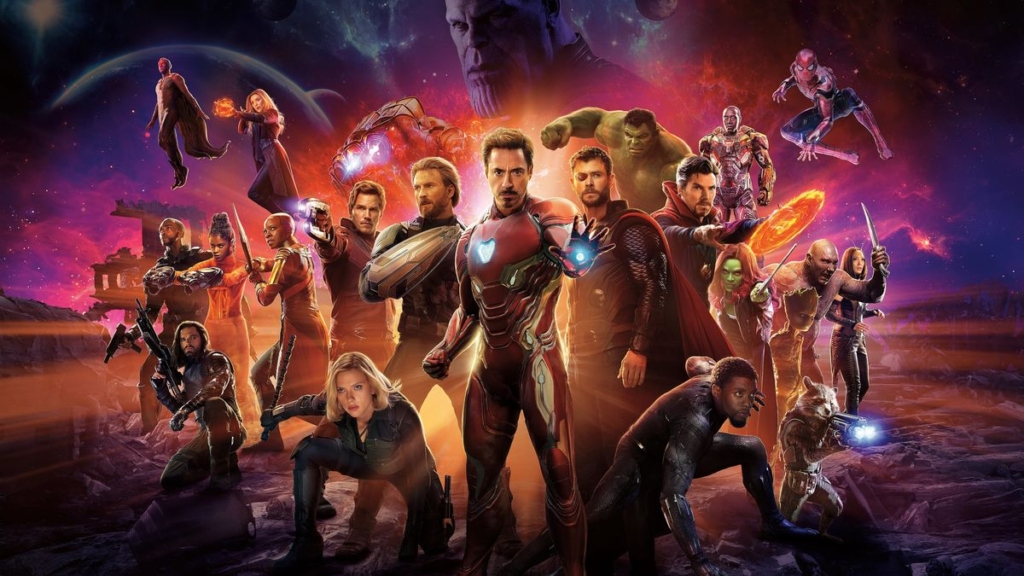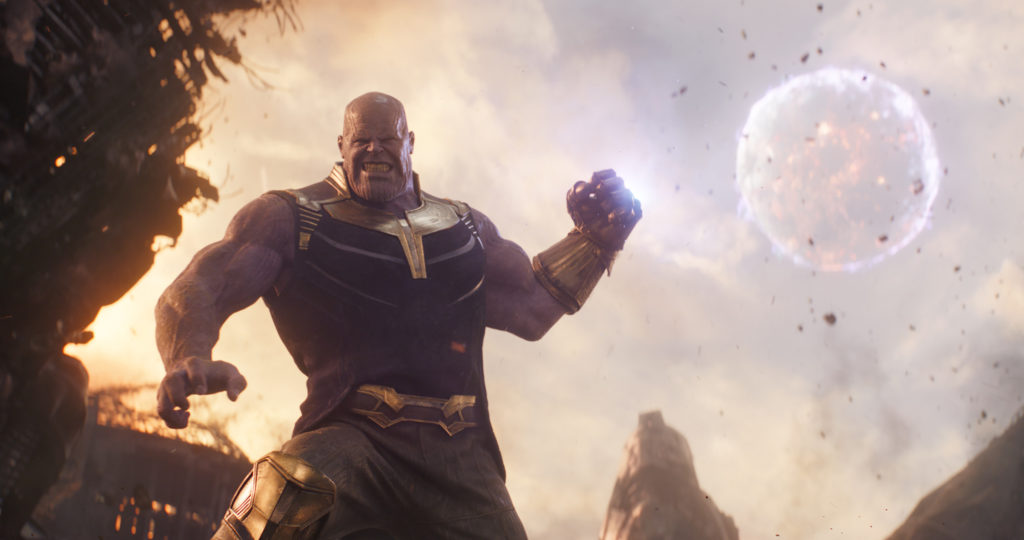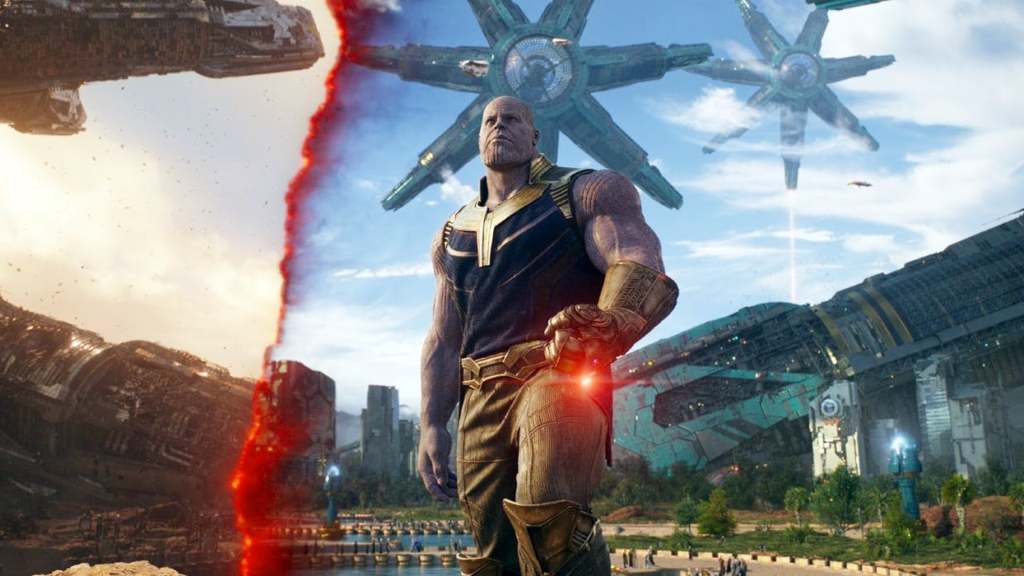I recently finally saw Avengers: Infinity War. The delay was thanks to the fact that early-run memes spoiled the ending for me within the first two days of release. I just needed a little time to chill and remember that the story is more than the ending. When I did finally get around to it, it was alongside Deadpool 2. So I got a nice “Josh Brolin as Marvel Sad Dads” movie marathon.
Unlike those memes, though, this piece talks about the entire movie. So if somehow you’ve even waited past me to see Infinity War and want to come in unspoiled? First of all, good luck. Secondly, come back to this once you’ve seen it. It’s worth it.

There’s a lot to love about Infinity War, from massive Wakandan battle scenes to Spidey becoming an official Avenger to Bruce Banner just trying his best. While it was a massive change in tone from Thor: Ragnarok just before it, that would likely be true of anything that wasn’t a mostly ad-libbed bust-the-doors-down romp. The huge cast was handled well thanks to smart sectioning-off (Stark and Strange? MWAH!), and it was nice to see the Guardians brought into the main story at last. It wasn’t perfection, but it was what I wanted out of it.
That said, I couldn’t help but be gobsmacked at just how far the writers stuck their necks out regarding Thanos. Josh Brolin’s portrayal of the Big Bad wasn’t to everyone’s liking, granted. But the complaints they had — his softer, more emotional nature — was exactly what I thought made him more frightening. And, let’s be honest, more real.
The Humanity of Villains
I tell people, usually in a whisper, that we really do need to understand the humanity of bad people. Listeners do not take this statement well, as they generally assume I’m asking them to empathize with said bad people. To which I said — God, no. No. Please, do not try to empathize with bad people. Don’t do that to yourself.
What I do want is for people to understand that you cannot track the inherent badness of a person via arbitrary elements of their lives. There’s a mentality that if a person is evil, then this evilness colors every aspect of their being. If they’re racist, or abusive, or what have you, then there will be no love and no goodness in their lives. And when you believe that, you put on blinders to a lot of really horrible people. One of the most racist, sexist people I’ve ever met is a respected professional and goes to church and loves his wife and daughter. There were other tells in his personality, but if you looked solely at his motivations and career and family life, you would not see a monster.

Thanos shares a spot with Black Panther‘s Killmonger as one of Marvel’s most true-to-life villains. While escapism lends room for universe-conquerors and general Bad Dudes, it doesn’t hurt to be reminded occasionally of the villains in the real world, and their methods. There are most certainly real-world people who are all about power and conquest. But when it comes to the day-to-day, you’re going to run into far more Thanoses.
These are people who aren’t interested in power for power’s sake. People who love their families, who want to see other people happy, who want goodness and prosperity to reign. They aren’t out for sadness and destruction. They want what they think is best for the world. The problem is not in what they do . . . it’s in what they believe. And when we decide that bad people must be fully horrible in all things, we lose our ability to spot them in real life.
A Hard Pill
Are you ready to get really uncomfortable? Let’s get really Good Will Hunting finale levels of psychologically uncomfortable.
Thanos loved Gamora as a daughter.
Thanos. Loved. Gamora. As. A. Daughter.
He cried when he sacrificed her, but the universe can’t be fooled by crocodile tears. It was seen as an adequate sacrifice. He loved her as a daughter, he hated what he did, and he did it because he saw it as a necessary evil for the greater good.
This is important. Not because it suddenly gives Thanos a redeeming quality (it doesn’t), but because bad people can truly and genuinely love their children. They can love them while using them. They can love them while playing favorites. The ability to love another person does not negate that person’s ability to do horrible things. To put it another way, evil people are not incapable of love. It’s not a “tell,” it’s not a reliable universal truth. It doesn’t work that way.
The Truth of Villainy

The easiest course when regarding a bad person is to imagine them as 100 percent bad, especially if that person has hurt us. Anything else can create dissonance. They’re lovely to this group of people, but horrendous to that group. They bake pies for their grandkids and donate to charity, but have no trouble showing their faces at rallies. They walk among us like normal people, except for those times when they out themselves by saying and doing horrible things. That can’t be the case, though, can it?
The problem is, it can and it is. Like Thanos, the most effective villains (real or fictional) are the ones who believe they’re doing the right thing. If people try to stop them, they believe they’re enduring adversity. If what they’re doing “obligates” them to harm people they care about, they see themselves as martyrs for a cause. Understanding that, and understanding that truly horrible people can be loving and humane in other parts of their life, isn’t a call to care about them or excuse them. It’s protection for us.
When we expect our monsters to look like monsters, we can’t see the monsters. It would ease the heart greatly to believe that every bad and inhumane person is incapable of achieving or enjoying the things they deny others. It would feel fair, and it would make them easier to spot. And it’s true, some people do become so wrapped up in themselves that they self-destruct. But others will blindside us, seeing themselves as a put-upon hero as they do so.

Separating behavior from intent is our saving grace here. Acknowledging that monsters don’t necessarily fit a “villain profile” helps us see them, cope with them, and learn to recognize what they’re doing so we can better combat it.
There’s no sympathy for Thanos, or for the villains in the real world who see themselves as heroes, love their families, and cry over losses as they cause destruction around them. Seeing their humanity isn’t a favor to them: it’s a reminder to ourselves. Nor is it a call for us to excuse their behavior or fall under their heel. If anything, it’s a call for us to watch closely. Because understanding that our monsters are human prepares us to fight them.



1 Comment
Brava, Kara – this is a GREAT piece, and beautifully written. Lots to think about here, especially these days…